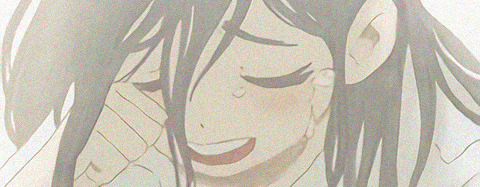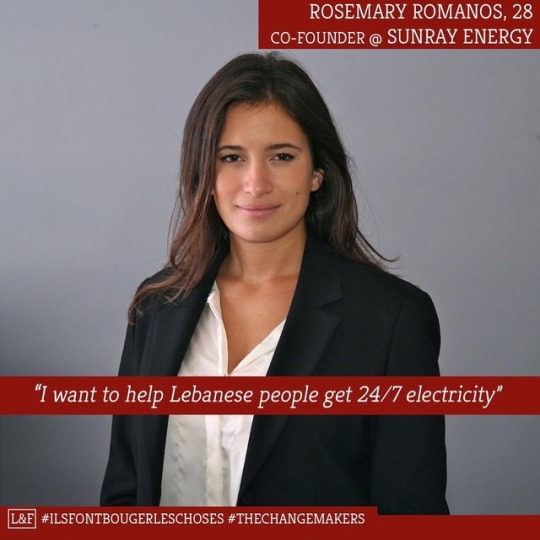#sunny mentionn
Explore tagged Tumblr posts
Note
Can you write how Canon Mari (Real World) would interact with Omari AU Mari (any interpretation) please?

ᵃ/ⁿ﹔ ⁱ'ᵐ ᵃ ᵈᵘᵐᵈᵘᵐ ᵃⁿᵈ ⁱ ˢᵗⁱˡˡ ʳᵉᶠᵘˢᵉ ᵗᵒ ᵗʰⁱⁿᵏ ᵒᶠ ᵃⁿʸ ᵗⁱᵗˡᵉˢ. ⁱ'ᵐ ⁿᵒᵗ ˡⁱᵏᵉ ˢᵘᵖᵉʳ ⁱⁿᵛᵉˢᵗᵉᵈ ⁱⁿ ᵗʰᵉ ʷʰᵒˡᵉ ᵒᵐᵃʳⁱ ᵃᵘ ᵗʰⁱⁿᵍ ᵃⁿᵈ ᵇᵃʳᵉˡʸ ᵏⁿᵒʷ ˢʰⁱᵗ ˢᵒʳʳⁱ.. ﹕ˢᵒᵇ :
PAIRING; MARI (RW) + OMARI AU MARI (also RW cauz y not ;3)
Genre; idk man....mostly fluff or just something wholesome !11!!!1

MARI (RW) + OMARI AU MARI(RW)!!!
i don't know much about the whole Omari Au thing so i'm jst gonna believe it's just MARI in SUNNY'S place....
MARI would probably think it's just SUNNY pretending to be her for a moment or something...
the moment she realizes that THAT'S LITERALLY HER i feel like she'd be like ''huh???? wym?????''
would def braid her hair 100%
Since (or at least i think so...) OMARI AU MARI(im just gonna call her OMARI for this cauz... ya.) is just MARI in SUNNY'S place she wouldn't speak much,,,,,
MARI would 100% basically treat OMARI like she's SUNNY
''do you want something to eat??'' "can i get you something to drink???" ''do you need help??'' an allat yadda yadda
silly thought; MARI taking OMARI to have picnics.
i feel like MARI would ask OMARI to play something on the piano or smth,,,(IF SHE CAN IDK)
if she can't then the violin.
dude MARI would def tease OMARI...
would AND WILL talk and talk and talk with OMARI 100%
if OMARI doesn't even eat properly dude oh god
MARI WILL FEED OMARI LIKE A BABY
idk why their dynamic just gives off like
this like...
'i will protect you but i'm also gonna tease you and baby you' typa shizz..
dunno why.
MARI would most likely TRY. (keyword try) to make OMARI open up more
or just talk more or smth
overall 9.5/10 dynamic and interactions
i want MARI to braid MY hair liak......

man i suck at this but who carezzzz ( i do )
daily reminder to take care of urself pook drink water EAT get rest and allat yadda yadda
ily
#omori#mari omori#omari au#sunny mentionn#ayyyayyaay#2nd requesttttt#YAYAYYAYA#omori mari#omari MARI#peakypeakiii hc's are silly#i think y'all forgetting i write for other fandoms too...#but idc OMORI is still one of my favs#dude this took WAY too long then i thought it would#omori game#MARI omori#i love mari shes so silly
8 notes
·
View notes
Text
L’utilisation de l’anglais par le personnage du Rouquin dans la scène finale
Le passage du texte en anglais à la scène finale rappelle l’univers littéraire et américain duquel s’est inspiré Koltès pour écrire Sallinger. Ce monologue du Rouquin semble très proche du personnage de Holden Caulfield dans L’attrape-cœurs, ainsi que du personnage de Seymour Glass, particulièrement dans la nouvelle Hapworth 16, 1924 (lettre que Seymour, âgé de sept ans, écrit à ses parents).
Les personnages du Rouquin et de Seymour Glass partagent tous deux une fascination pour les oiseaux. D’ailleurs, dans la nouvelle Seymour : an introduction (1959), Buddy tente de décrire son frère bien aimé et désormais mort. En s’adressant au défunt, Buddy mentionne la fascination de Seymour pour les oiseaux :
« ...you're someone who took up birds in the first place because they fired your imagination; they fascinated you because 'they seemed of all created beings the nearest to pure spirit--those little creatures with a normal temperature of 125° » (Salinger, 1959).
À son interlocuteur-trice au bout du fil, le Rouquin évoque une anecdote métaphorique :
« LE ROUQUIN : And here I am now like an heliotrope in the glasshouse of a laboratory. Vous connaissez pas ce phénomène? Un savant musicien fait de la musique près d’un champ de tournesols. Il se met du côté opposé au soleil, par un jour de beau temps, et il joue de son violon, patiemment. Eh bien, on voit au bout de quelque temps les fleurs se détourner, une à une, du soleil, pour ouvrir leurs pétales vers là d’où vient la musique » (Koltès, 1995).
Ce passage semble se raccrocher explicitement à la littérature américaine et à l’univers de la Beat Generation, plus particulièrement au poème The sunflower sutra d’Allen Ginsberg (1955) :
« I walked on the banks of the tincan banana dock and sat down under the huge shade of a Southern Pacific locomotive to look at the sunset over the box house hills and cry.
Jack Kerouac sat beside me on a busted rusty iron pole, companion, we thought the same thoughts of the soul, bleak and blue and sad-eyed, surrounded by the gnarled steel roots of trees of machinery.
The oily water on the river mirrored the red sky, sun sank on top of final Frisco peaks, no fish in that stream, no hermit in those mounts, just ourselves rheumy-eyed and hung-over like old bums on the riverbank, tired and wily.
Look at the Sunflower, he said, there was a dead gray shadow against the sky, big as a man, sitting dry on top of a pile of ancient sawdust—
—I rushed up enchanted—it was my first sunflower, memories of Blake—my visions—Harlem and Hells of the Eastern rivers, bridges clanking Joes Greasy Sandwiches, dead baby carriages, black treadless tires forgotten and unretreaded, the poem of the riverbank, condoms & pots, steel knives, nothing stainless, only the dank muck and the razor-sharp artifacts passing into the past—
and the gray Sunflower poised against the sunset, crackly bleak and dusty with the smut and smog and smoke of olden locomotives in its eye—
corolla of bleary spikes pushed down and broken like a battered crown, seeds fallen out of its face, soon-to-be-toothless mouth of sunny air, sunrays obliterated on its hairy head like a dried wire spiderweb,
leaves stuck out like arms out of the stem, gestures from the sawdust root, broke pieces of plaster fallen out of the black twigs, a dead fly in its ear,
Unholy battered old thing you were, my sunflower O my soul, I loved you then!
The grime was no man’s grime but death and human locomotives,
all that dress of dust, that veil of darkened railroad skin, that smog of cheek, that eyelid of black mis’ry, that sooty hand or phallus or protuberance of artificial worse-than-dirt—industrial—modern—all that civilization spotting your crazy golden crown—
and those blear thoughts of death and dusty loveless eyes and ends and withered roots below, in the home-pile of sand and sawdust, rubber dollar bills, skin of machinery, the guts and innards of the weeping coughing car, the empty lonely tincans with their rusty tongues alack, what more could I name, the smoked ashes of some cock cigar, the cunts of wheelbarrows and the milky breasts of cars, wornout asses out of chairs & sphincters of dynamos—all these
entangled in your mummied roots—and you there standing before me in the sunset, all your glory in your form!
A perfect beauty of a sunflower! a perfect excellent lovely sunflower existence! a sweet natural eye to the new hip moon, woke up alive and excited grasping in the sunset shadow sunrise golden monthly breeze!
How many flies buzzed round you innocent of your grime, while you cursed the heavens of the railroad and your flower soul?
Poor dead flower? when did you forget you were a flower? when did you look at your skin and decide you were an impotent dirty old locomotive? the ghost of a locomotive? the specter and shade of a once powerful mad American locomotive?
You were never no locomotive, Sunflower, you were a sunflower!
And you Locomotive, you are a locomotive, forget me not!
So I grabbed up the skeleton thick sunflower and stuck it at my side like a scepter,
and deliver my sermon to my soul, and Jack’s soul too, and anyone who’ll listen,
—We’re not our skin of grime, we’re not dread bleak dusty imageless locomotives, we’re golden sunflowers inside, blessed by our own seed & hairy naked accomplishment-bodies growing into mad black formal sunflowers in the sunset, spied on by our own eyes under the shadow of the mad locomotive riverbank sunset Frisco hilly tincan evening sitdown vision » (Ginsberg, 1955).
Pour en apprendre d’avantage sur le phénomène d’héliotropisme, cliquez ici.
Finalement, dans sa thèse de doctorat Bernard-Marie Koltès: (1977-1989) le pacte « ironique»?[1], Carine Rousselot explique un peu l’utilisation de langues étrangères dans l’écriture de Koltès :
« Les voix – le partage des voix – koltésiennes en même temps que l’idiolecte saisissant de leur auteur portent aussi le ‘’pittoresque’’ de la vie, son ‘’idiotie’’, la part qui semble rendue d’autant plus irréductible chez le personnage koltésien, qu’elle se fonde sur l’expérience (du désir) de l’auteur, le personnage comme ‘’l’unique de son espèce’’. Un réel qui n'est que le réel, et rien d'autre, est insignifiant, absurde, ‘’idiot’’, comme le dit Macbeth. Macbeth a d'ailleurs raison, sur ce point du moins : la réalité est effectivement idiote. Car, avant de signifier imbécile, idiot signifie simple, particulier, unique de son espèce. Telle est bien la réalité, et l'ensemble des évènements qui la composent : simple, particulière, unique – idiotès –, ‘’idiote’’. Cette idiotie de la réalité est d'ailleurs un fait reconnu depuis toujours par les métaphysiciens, qui répètent que le ‘’sens’’ du réel ne saurait se trouver ici, mais bien ailleurs. Les exemples les plus suggestifs de ‘’l’idiotie’’ des personnages du théâtre de Koltès se révèlent dans toutes les apparitions de leurs langues maternelles. L’anglais du Rouquin (Sallinger), la langue ouolof d’Alboury, l’allemand de Léone, qui dans les premières versions s’exprimait en alsacien (Combat), l’espagnol de Cécile qui meurt en quetchua, la langue d’Abad silencieux que seul Charles entend (Quai Ouest), l’arabe de Mathilde, d’Aziz et de Saïfi (Le Retour au désert), l’italien de Roberto Zucco, jusqu’au talent polyglotte du Commissaire (Roberto Zucco) » (Rousselot, 2017, p.263).
[1] Sous la direction de France Marchal-Ninosque et de Christophe Bident.
0 notes
Photo

”2 years ago, I was visiting an old lady in the South of Lebanon when there was a power cut. She very casually invited us to continue the conversation outside, as she had no generator. I was furious. I found it deeply unfair that this Lebanese woman had to suffer through 12 hours of power cut daily, and found it normal. I am an electrical engineer, I was working at Google in London at that time, but I wanted to find a solution. I met Imad, who became my co-founder, he wanted to work on solar energy with me. I figured that in Lebanon, with all the sunny days we have, it should work! This is how Sunray Energy was born in Feb 2017. We offer a system of solar generated energy to fill in the gap in the household electricity supply. We are working on a financial system which would make it as cheap or cheaper than the generator. “ Rosemary will be at the MakeSense Sensecamp this weekend. Don’t forget to use your code LFlove when booking to get a $10 discount! : https://ihjoz.com/events/2892-makesense-resilient-cities-sensecamp-lebanon-2018 ----- 🇫🇷 « C’était il y a 2 ans. J’étais rentrée pour les vacances au Liban, à l’époque je travaillais à Londres chez Google. Je rendais visite à une dame au Liban Sud quand l’électricité s’est coupée. Elle n’avait pas de générateur alors elle nous a invité à poursuivre la conversation dehors. Cela m’a mise hors de moi ! J’ai trouvé ça si injuste, cette Libanaise subissait 12 heures de coupures quotidiennes sans se plaindre. En tant qu’ingénieure électrique, j’ai voulu trouver une solution. J’ai rencontré Imad, mon partenaire actuel: il voulait qu’on travaille ensemble sur l’énergie solaire. Je me suis dit que ça devait fonctionner au Liban avec tout le soleil que nous avons.C’est ainsi qu’est née Sunray Energy en février 2017. Nous proposons aux Libanais l’énergie solaire pour combler les carences en électricité, et nous travaillons à la rendre plus accessible qu’un abonnement à un générateur». Rosemary sera au SenseCamp de MakeSense ce week-end. N’oubliez pas de mentionner le code LFlove pour avoir une remise de 10 dollars lorsque vous réservez! https://ihjoz.com/events/2892-makesense-resilient-cities-sensecamp-lebanon-2018 !
0 notes